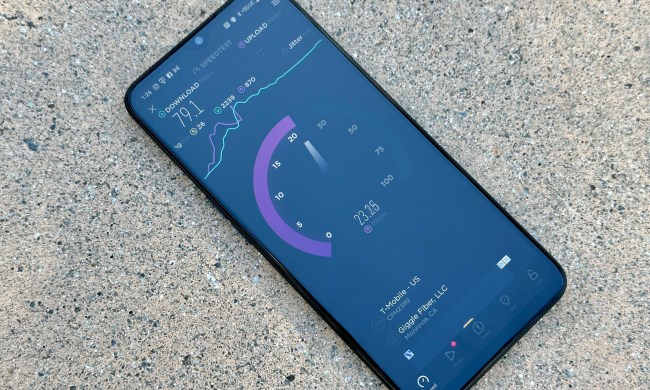The major 5G carriers are all rolling out 5G, and Verizon was arguably the first to start doing so. It started with pockets of mmWave coverage in some major cities and has since adopted Sub-6 coverage for its nationwide 5G network. But the carrier was also the first to roll out another 5G-related service: 5G home internet.
Setting up
Interested in taking advantage of the potential increased download speeds that
Verizon 5G home internet plans
On mobile, there are a number of different 5G plans that you could subscribe to — but it’s a little different when it comes to home internet. The Verizon 5G plan actually offers only one
Verizon actually offers only one
Traditionally, home internet plans are based on speeds — but that’s normally because you’re getting your internet through a cable, and internet service providers can better control and monitor the speeds that it’s delivering. With 5G-based home internet, things are a little different. Verizon touts its plan as delivering typical speeds of 300Mbps and reaching as high as gigabit speeds — but again, your real-world mileage may vary radically. Verizon seems to be offering the plan only in areas with relatively strong connectivity, so while that limits how many people can take advantage of it, it also means that users who do get access should achieve solid speeds.
The plan offers some perks other than simply getting decent internet speeds. For example, you’ll get a year of Discovery+, and Verizon gives users a free TV streaming box, which supports most major streaming services like Netflix and HBO Max.
While the plan itself doesn’t change, the price of the plan can — and it depends on whether you use Verizon for your phone plan. With a phone plan that costs $30 or more, you’ll get Verizon
Verizon 5G Home Internet Plans
Verizon 5G home internet coverage

As mentioned, Verizon seems to be approaching its 5G-based home internet service conservatively, seemingly to ensure a quality service. As such, it’s only available in a few cities — and even within those cities, you may not be eligible. Check out the full list of cities with Verizon
- Phoenix, Arizona
- Los Angeles, California
- Orange County, California
- Sacramento, California
- San Francisco, California
- San Jose, California
- Denver, Colorado
- Miami, Florida
- Atlanta, Georgia
- Chicago, Illinois
- Indianapolis, Indiana
- Detroit, Michigan
- Minneapolis, Minnesota
- St. Paul, Minnesota
- St. Louis, Missouri
- Arlington, Texas
- Dallas, Texas
- Houston, Texas
- Cleveland, Ohio
- Las Vegas, Nevada
- Louisville, Kentucky
- Omaha, Nebraska
- San Diego, California
- Charlotte, North Carolina
- Cincinnati, Ohio
- Hartford, Connecticut
- Kansas City
- Salt Lake City, Utah
- Milwaukee, Wisconsin
- Tampa, Florida
- Riverside, California
- Memphis, Tennessee (Starting May 6)
- San Antonio, Texas (Starting May 6)
You can check eligibility for your specific address at Verizon’s website.
Verizon 5G home internet service and speeds
It’s a little hard to predict just how fast your
As Verizon continues to build out its 5G network, it’s likely that average 5G speeds will get better and that more customers will get access to the service.


